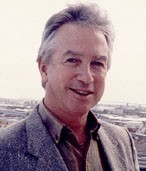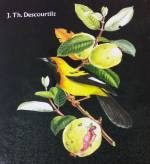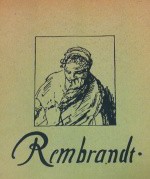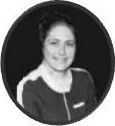Dunstan Collection
Aboriginal and Torres Strait Islander people should be aware that items in the Flinders University Library collections may contain images, voices, and names of deceased persons. In some Aboriginal and Torres Strait Islander communities, hearing recordings, seeing images or the names of deceased persons may cause sadness or distress and, in some cases, offend against strongly held cultural prohibitions.
The Dunstan Collection was given to Flinders University Library in March 1988 by Don Dunstan (Premier of South Australia 1967-1968 and 1970-1979).
It is housed in a separate purpose-built room in Special Collections, and contains files relating to his political, professional and personal life, photographs, press clippings, speeches and press releases, audiovisual material, books from his library, some items of clothing and other memorabilia.
The collection was given to the Library on the condition that access would be restricted to bona fide scholars.
Search the Dunstan Collection for
- Dunstan Collection archival material,including files, press clippings and other documents.
- Scans of articles, broadcasts, press releases,press clippingsand speeches.
- Books and periodicals in the Dunstan Collection.
Go to the Dunstan Collection in findit@flinders. (Add additional search terms in the search box to search within the collection)
Go to the Dunstan Photograph Collection in findit@flinders. (Add additional search terms in the search box to search within the collection)
Go to the Don Dunstan Oral History Project

Links to related sites
- Calwell Memorial Lecture : South Australian Premier Don Dunstan Announces Land Rights For The Pitjantjatjara People, July 1978. Recording now available from Australian Politics.
- Don Dunstan Foundation at Adelaide University
- The Dunstan Decade in SA Politics at the State Library of South Australia
- The Peter Ward papers at the State Library of South Australia
Speeches, press releases, articles, policy statements and radio broadcasts now digitised
Browse and read speeches, press releases, articles, policy statements and radio broadcasts by Dunstan from throughout his parliamentary career. Click here for full-text keyword searching or use the Dunstan Collection search box on this page for subject and date searching.
Media Don
Listen to Ruth Starke in conversation with Kerryn Goldsworthy on Dunstan and the Media, Flinders University Library, Friday 15 March 2013.
Biography
Donald Allan Dunstan
1926-1999
- Childhood and education
- Early career and first marriage
- Premiership
- Achievements
- Post-political career
Childhood and education
Donald Allan Dunstan was born on 21 September 1926 in Fiji, of South Australian parents. His father was the Nausori manager for Morris Headstrom. An asthmatic child, he was sent for health reasons to Murray Bridge, South Australia to live with relatives. He returned to Fiji briefly for some of his secondary schooling, where he made friends among the local Indian and Fijian children and dismayed white colonials by refusing to share their racial prejudices. He returned to Adelaide to complete his secondary schooling at St Peter's College as a day boy, living with relatives in Glenelg.
He went on to study Law and Classics at Adelaide University, working in theatre and radio to finance his studies. In his undergraduate years, he became involved with the ALP and trade union activities.
Early career and first marriage
On graduation in 1948, he practised law in Fiji for a short time before returning to Adelaide early in 1951 and became involved in Labor politics while developing a legal practice. He married his first wife, Gretel, in 1949, and they had three children, Bronwen, Andrew and Paul.
After being elected to State Parliament in 1953 as member for Norwood (at the time considered a safe Liberal seat), Dunstan set about establishing himself as a reformer intent on winning government. In 1965, when Labor finally came to power under Premier Frank Walsh, he was appointed Attorney-General, Minister for Social Welfare and Minister for Aboriginal Affairs.
Premiership
When Walsh stepped down in 1967 he was elected leader and became Premier for a short time, until Labor lost government the next year to the Liberal Country League under Steele Hall, despite gaining 53% of the vote. Hall introduced legislation to change the electoral boundaries, and in the 1970 elections Labor was returned to power and the Dunstan decade began in earnest. He remained Premier and Treasurer, as well as taking on several other portfolios until 1979, when he was forced to resign due to ill health.
In 1974, he and his first wife divorced after a two-year separation. In 1976, Dunstan married Adele Koh, a journalist, who had joined his staff as research assistant in 1973 having been expelled from Singapore during a press crackdown. Their marriage was a short one, however, as she died from cancer in 1978.
As Attorney General and Premier, Dunstan achieved an unprecedented series of social, cultural and political reforms. He was a strong believer in individual rights, and introduced anti-discrimination legislation to protect the rights of women, homosexuals and Aboriginal Australians. He was the originator in government of Aboriginal land rights, and his voice within the ALP helped end the federal White Australia policy. He set up an environmental portfolio in the government, and was responsible for the development of conservation and environmental programmes in the State. He also introduced consumer protection legislation, and relaxed censorship and supported the rights of young people to express their views.
He was a driving force behind the establishment of the Festival Centre, and helped expand the Adelaide Festival of Arts. He set up the SA Film Corporation and the Jam Factory, an outlet for local craft workers.
As Attorney General, he extended drinking hours from six o'clock closing which was then in force. He changed licensing laws to allow outdoor eating and drinking, and to allow cellar door sales at wineries. In 1976 he opened Rundle Mall, turning a congested city street into the pedestrian precinct we know today. His unconventional attitude to dress led the way for a relaxation of the State's rigid suit and tie dress code in business and government.
Post-political career
In 1982 he was appointed head of the Victorian Tourism Commission, but returned to Adelaide in 1986 after falling out with the Cain government. He then opened a restaurant, Don's Table, in Norwood, in partnership with his friend Stephen Cheng. The restaurant ran into severe financial problems a few months before Dunstan's death in 1999, and has now closed.
Dunstan died at his Norwood home on 6th February 1999, having succumbed to the cancer which had been threatening for several years.
Biographical information taken from Adelaide Review, March 1999 and The Advertiser, 8-12 February 1999 and information in the Dunstan Collection.
Conditions of access
Access to the Dunstan Collection is available to bona fide scholars and the Dunstan family (including Don Dunstan’s descendants). Appointment requests can be made to the Library through our request form. A selection of items are embargoed until February 2049.
Those seeking to share or publish their work in any capacity resulting from access to the collection need formal approval from the Dunstan Committee of Review. Applications to share or publish work should also be made to the Library who will refer requests to the Committee of Review.
Copying will be allowed in accordance with the provisions of the Copyright Act 1968 as amended. One copy of each item may be made for research and study. The applicant is responsible for seeking the approval of the copyright owner if use is to be made of the papers in any publication or if they wish to make additional copies. All copying will be charged at the current price rate per page. Any publications in which the material is used must acknowledge The Dunstan Collection, Flinders University Library, as a source of information.
The general conditions of access to Special Collections also apply.
Need help?
Submit an online enquiry about Special Collections
or request an appointment.
![]()
Sturt Rd, Bedford Park
South Australia 5042
Ph: 1300 354 633 (Select 3)
Email: library@flinders.edu.au
CRICOS Provider: 00114A TEQSA Provider ID: PRV12097




